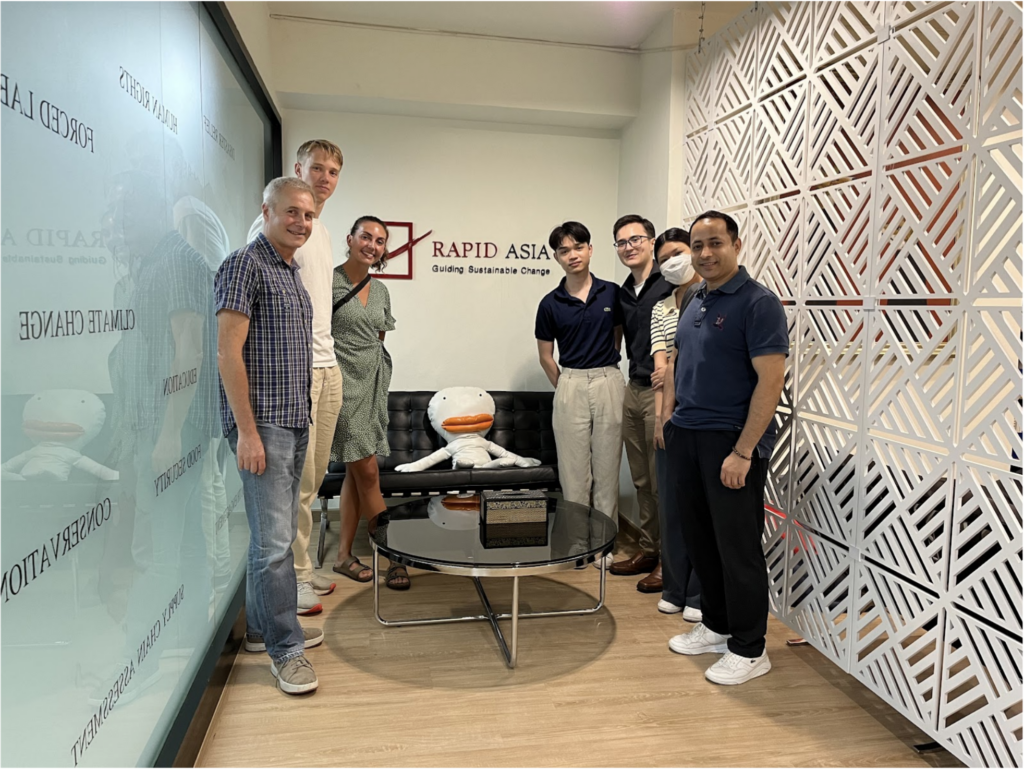
My study visit to Rapid Asia in Bangkok provided a detailed look into the field of social research and development consulting, an industry I have never encountered before. I met with Daniel Lindgren, the company’s founder and CEO, and Dr. Ilhan, a senior project executive, who provided insights into the company’s growth, operations, and approach to social development challenges.
Founded in 2010 by Daniel Lindgren, Rapid Asia began as a small operation run from Daniel’s bedroom following his dismissal from a consulting role. Initially, the company took on projects for a few clients, gradually expanding as project success contributed to its growth. Today, the company has a small team of international staff members and dr. Illhan could proudly tell me that the company is securing approximately 50% of the clients it approaches and 10% of the projects it applies for.
Rapid Asia is centered around providing evidence-based insights to clients, primarily international development agencies like the International Organization for Migration (IOM) and the United Nations Development Programme (UNDP). They have conducted projects in over 30 countries across Asia, Africa, Eastern Europe, and Latin America, covering areas such as human trafficking, climate change, health, education, and disaster relief.
Dr Illhan told me about the structure of Rapid Asia’s projects. The team tailors its approach to the requirements of each project, designing research frameworks, collecting data through local partners, and conducting analysis before presenting findings to clients. In some cases, the company also prepares detailed reports for dissemination.
The biggest challenges in the industry is finding suitable research participants, especially on sensitive topics like health and immigration that often involve hidden or vulnerable groups. Dr Illhan emphasized that the difficulties are further complicated in conflict-affected regions, for example Myanmar and Pakistan.
During my visit, we also discussed the unfortunate reality that the industry surrounding human rights is growing rather than shrinking. Despite global efforts to protect and promote human rights, violations continue to occur driven by new conflicts and wars that arise around the world. This has led to an increasing demand for organizations like Rapid Asia to conduct research and evaluations that document these violations, push for policy changes, and support efforts to address the ongoing injustices.
Daniel shared stories from some of the most memorable projects in Rapid Asia’s history. One such project took place in Papua, where the team worked with indigenous tribes to understand their needs related to education, health, agriculture, and welfare. The project aimed to gather information about the region’s independence movement and highlighted the importance of approaching every community with respect and an open mind. Daniel reflected on the experience, emphasizing the value of not judging a person’s intelligence or potential based on their lifestyle or appearance.
Our discussions also touched upon the differences in the business climate between Asia and Sweden. In Sweden, business processes tend to prioritize automation and efficiency. In contrast, Asia’s business environment is characterized by a more personal touch, with a strong emphasis on service and human interaction.
The visitor was a very positive experience as Daniel Lindgren and Dr. Ilhan were not only kind but also eager to share their experiences and insights. They openly discussed their work, offering detailed explanations of their approaches while encouraging me to share my own thoughts. The visit provided me with first-hand insights into a sector I had not encountered before, revealing how social research can drive meaningful change. I learned how Rapid Asia’s work plays a vital role in addressing complex social issues and contributing to sustainable development efforts across the globe.
